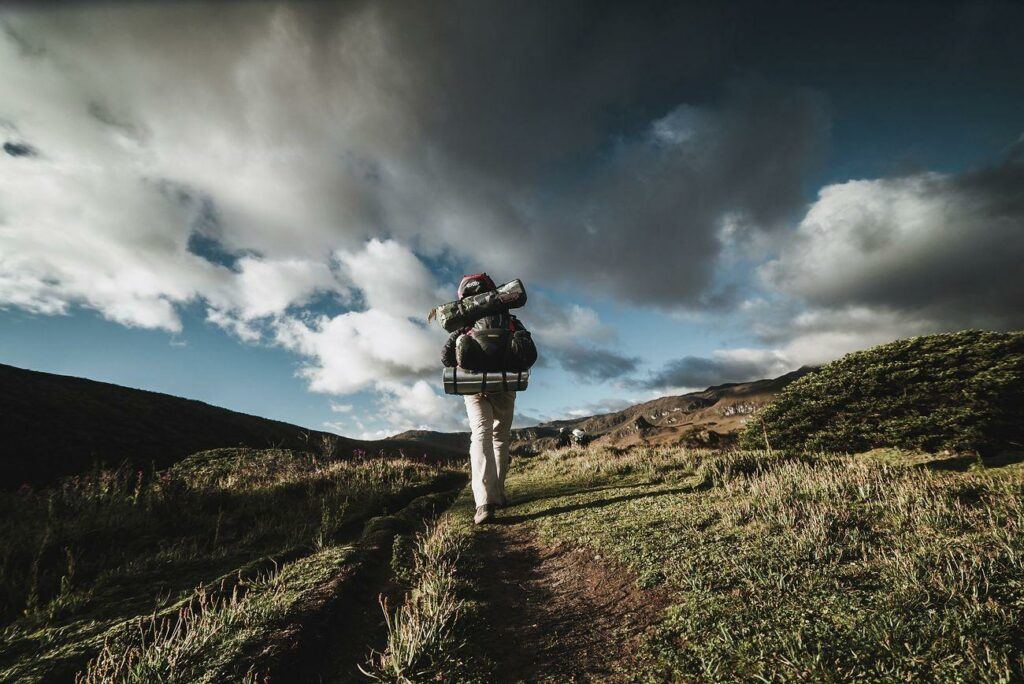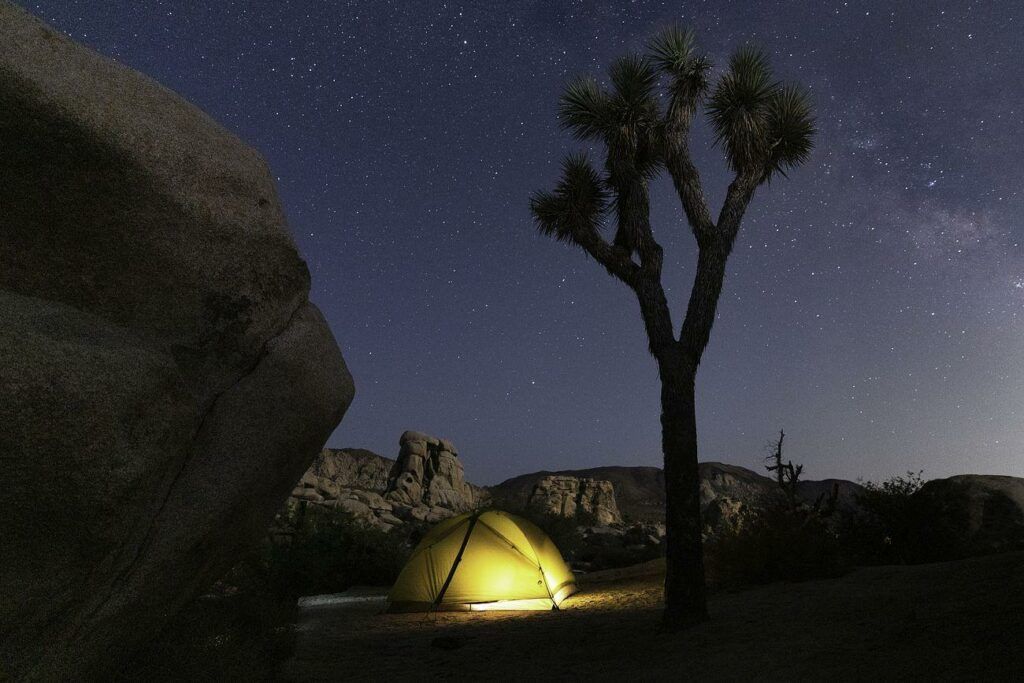Why Backpacking is a Thrilling Activity for Beginners
Backpacking is more than just a simple outdoor activity; it is a chance to get away from the hustle and bustle of daily life and explore the wonders of nature. For beginners, it can be an intimidating experience, but with the right preparation and mindset, it can also be an incredibly fulfilling one. Here are some reasons why backpacking is a thrilling activity for beginners:
The Benefits of Backpacking
1. Physical Exercise
Backpacking is an excellent way to get some exercise while exploring the great outdoors. It’s a low-impact activity that can improve your cardiovascular health, strengthen your muscles, and help you lose weight.
2. Mental Relaxation
Backpacking can also be a great way to reduce stress and anxiety. Being out in nature can help you disconnect from the stresses of everyday life and clear your mind.
3. Opportunity for Adventure
Backpacking gives you the opportunity to explore new places, see new things, and experience new cultures. It’s a chance to push yourself out of your comfort zone and create memories that will last a lifetime.
How Backpacking Can be a Fulfilling Experience for Beginners
1. Sense of Accomplishment
When you complete a backpacking trip, you’ll feel a sense of accomplishment that can boost your confidence and self-esteem. It’s an opportunity to challenge yourself and see what you’re capable of.
2. Increased Confidence
Backpacking can also help you build confidence in yourself and your abilities. It’s a chance to learn new skills and push yourself out of your comfort zone.
3. Learning New Skills
Backpacking is an opportunity to learn new skills like navigation, campfire cooking, and wilderness survival. These skills can be useful in other areas of your life, such as when you’re camping with friends or family.
Essential Tips for Beginner Backpackers
Backpacking is an adventure that requires proper planning, preparation, and safety measures. As a beginner, it’s essential to know the basics of backpacking and take the necessary precautions to ensure a successful trip. Here are 25 essential tips for beginner backpackers:
Tip #1: Start Small
If you’re new to backpacking, it’s best to start with a shorter trip on an easy trail. This will give you a chance to get used to your gear and test your skills without pushing yourself too hard.
Tip #2: Invest in Proper Gear
Investing in proper gear is essential for a successful backpacking trip. According to REI, some essential items that you’ll need include a properly fitted backpack, a tent, a sleeping bag, a sleeping pad, a stove and fuel, water filter or purification tablets, headlamp or flashlight, map and compass, first-aid kit, multi-tool or knife, sunscreen and insect repellent.
Tip #3: Know Your Route
Before you start your trip, research the trail and understand the terrain. According to The Wandering Queen, make sure you know the distance, elevation gain, and any potential hazards along the way.
Tip #4: Check Weather and Prepare for Unexpected Conditions
Check the weather forecast before you start your trip and be prepared for unexpected conditions. Bring extra layers of clothing, rain gear, and a warm hat and gloves. According to Shedreamsofalpine, it’s important to pack for the climate you’ll be hiking in and to pack clothing that is made of synthetic fabrics and wool.
Tip #5: Tell Someone Your Plans
Before you start your trip, tell someone your plans, including your route, expected return date, and emergency contact information. According to Amanda Outside, this is a crucial step in ensuring your safety on the trail.
Tip #6: Break in Your Hiking Shoes
Make sure you break in your hiking shoes before you start your trip. This will help prevent blisters and ensure a comfortable trip. According to Krimcode, it’s best to do this by wearing them on shorter hikes before your backpacking trip.
Tip #7: Learn How to Use Your Gear
Before you start your trip, make sure you know how to use all of your gear, including your stove, water filter, and navigation tools. According to REI, it’s important to practice using your gear before your trip to avoid any mishaps on the trail.
Tip #8: Pack Early and Pack Light
Start packing for your trip a few days in advance to ensure you have everything you need. Pack light to avoid carrying unnecessary weight. According to The Wandering Queen, packing early can help you avoid forgetting any essential items.
Tip #9: Be Prepared to Navigate
Learn how to navigate with a map and compass before you start your trip. This will help you stay on track and avoid getting lost. According to Shedreamsofalpine, it’s important to practice your navigation skills before your trip to ensure you’re comfortable with the tools you’ll be using.
Tip #10: Bring Friends or Go with an Experienced Backpacker
Bring a friend or go with an experienced backpacker to help you learn the ropes and ensure a safe trip. According to Amanda Outside, having someone with experience can also help you make more informed decisions on the trail.
Tip #11: Take Care of Your Feet
Take care of your feet by wearing comfortable socks and shoes and airing out your feet at night. According to Krimcode, it’s important to choose footwear that fits well and to bring extra socks to change into if your feet get wet.
Tip #12: Protect Your Food from Animals
Hang your food from a tree or use a bear canister to protect it from animals. According to The Wandering Queen, it’s important to store all of your scented items, such as food and toiletries, away from your sleeping area to avoid any unwanted visitors.
Tip #13: Take Breaks
Take breaks throughout the day to rest and refuel. This will help you avoid fatigue and stay energized. According to REI, it’s important to listen to your body and take breaks when you need them.
Tip #14: Practice Campfire Safety
Practice campfire safety by building fires in established fire rings and putting them out completely before leaving. According to Amanda Outside, it’s important to follow any fire restrictions in the area you’ll
Know Your Route
Before you start your trip, research the trail and understand the terrain. Here are some tips to help you plan your route:
Check Trail Conditions and Difficulty
Check the trail conditions and difficulty level before you start your trip. According to REI, some trails may have steep inclines, rocky terrain, or other hazards that can be challenging for beginners. It’s important to choose a trail that fits your skill level and experience.
Plan Your Route and Timing
Plan your route and timing based on your skill level and the trail conditions. According to The Wandering Queen, it’s important to consider factors like the distance, elevation gain, and potential hazards along the way. Make sure you have enough time to complete the trail and take breaks as needed.
Get a Map and Compass
Get a map and compass and learn how to use them before you start your trip. According to Shedreamsofalpine, it’s important to practice using your map and compass to ensure you’re comfortable with them. You can also use GPS or smartphone apps to help navigate, but it’s important to have a backup plan in case your device fails.
Consider Water Sources
Consider the availability of water sources along your route. According to Amanda Outside, it’s important to plan your water supply and bring a water filter or purification tablets to treat any water you collect along the way.
Check for Permits and Regulations
Check for permits and regulations in the area where you’ll be backpacking. According to Krimcode, some trails may require a permit or have restrictions on camping or campfires. Make sure you follow all regulations to ensure a safe and enjoyable trip.
Leave No Trace
Practice Leave No Trace principles by minimizing your impact on the environment. According to REI, this includes packing out all of your trash, avoiding damaging vegetation, and camping at established campsites when possible. Make sure you’re familiar with the Leave No Trace principles before you start your trip.

Take Care of Your Body
Backpacking can be physically demanding, and it’s important to take care of your body to ensure a safe and enjoyable trip. Here are some tips to help you stay healthy on the trail:
Train Before You Go
Train before you go by doing some cardio and strength training exercises. According to The Wandering Queen, it’s important to prepare your body for the physical demands of backpacking. Start with shorter hikes and gradually increase your distance and elevation gain.
Stay Hydrated
Stay hydrated by drinking plenty of water throughout the day. According to REI, you should aim to drink at least two to three liters of water per day. Bring a water filter or purification tablets to treat any water you collect along the way.
Eat Nutritious Foods
Eat nutritious foods to fuel your body on the trail. According to Amanda Outside, some good options include high-calorie snacks, freeze-dried meals, and protein bars. Avoid foods that are high in sugar, salt, or fat, as these can dehydrate your body.
Take Breaks
Take breaks throughout the day to rest and refuel. According to Shedreamsofalpine, it’s important to listen to your body and take breaks when you need them. Use this time to stretch your muscles and eat a snack.
Protect Your Skin
Protect your skin from the sun by wearing sunscreen and a hat. According to Krimcode, it’s important to choose a sunscreen with at least SPF 30 and to reapply it every two hours. Wear a hat to protect your face and scalp from the sun.
Take Care of Your Feet
Take care of your feet by wearing comfortable socks and shoes and airing out your feet at night. According to The Wandering Queen, it’s important to choose footwear that fits well and to bring extra socks to change into if your feet get wet.

Ready to Start Backpacking?
Now that you have learned some essential tips for backpacking, it’s time to start planning your trip. Remember to plan your route, take care of your body, and practice Leave No Trace principles. Here are some final thoughts to help you prepare for your backpacking adventure:
Start Small
Start small by choosing a short, easy trail for your first backpacking trip. According to Amanda Outside, this will help you build your skills and confidence before tackling longer, more challenging trails.
Go With an Experienced Friend
Go with an experienced friend or join a backpacking group to learn from others. According to Krimcode, this will help you learn valuable skills and avoid common mistakes.
Invest in Quality Gear
Invest in quality gear to ensure your safety and comfort on the trail. According to Shedreamsofalpine, some essential gear items include a backpack, tent, sleeping bag, stove, and water filter. You can rent or borrow gear if you’re not ready to invest in your own.
Share Your Trip Plan
Share your trip plan with a friend or family member before you go. According to REI, this will ensure someone knows where you’ll be and when you plan to return.
Check the Weather
Check the weather forecast before you go and pack accordingly. According to The Wandering Queen, it’s important to bring extra layers and rain gear in case of unexpected weather changes.
Enjoy the Journey
Enjoy the journey and take time to appreciate the beautiful scenery around you. According to Amanda Outside, backpacking can be a life-changing experience that helps you connect with nature and yourself.
We hope these tips help you have a safe and enjoyable backpacking trip. Check out our website for more great content on outdoor adventures and gear reviews.
FAQs
Who should I go backpacking with as a beginner?
Go with an experienced friend or join a group to learn from others.
What should I do to prepare for my first backpacking trip?
Start with short trails, invest in quality gear, and check the weather forecast.
How do I stay hydrated on a backpacking trip?
Drink plenty of water and bring a filter or purification tablets to treat water.
What should I do if I encounter wildlife on the trail?
Stay calm, make noise, and give them plenty of space. Do not approach or feed them.
How do I avoid getting lost on the trail?
Get a map and compass, learn how to use them, and bring a backup navigation device.
What should I do if I get blisters on my feet?
Stop and rest, clean and dry your feet, and use moleskin or blister pads to protect them.


